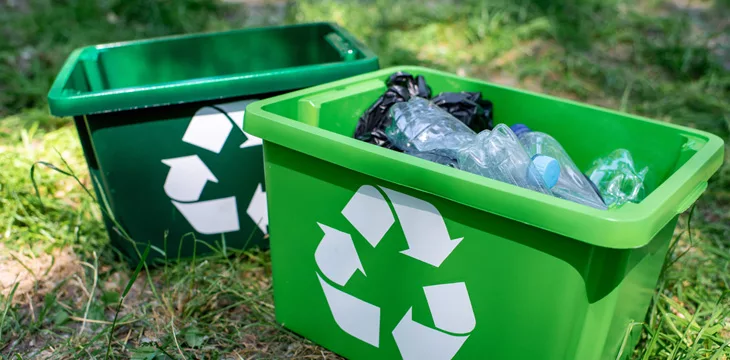
|
Getting your Trinity Audio player ready... |
Software firm Circularise has announced the completion of a pilot exploring the traceability of plastic waste using blockchain technology in partnership with Japanese firms AMITA and Marubeni Corporation (NASDAQ: MARUF).
Circularise’s pilot introduces two digital product passports that tracks plastic bottle caps across all stages of the recycling process. The initiative, trialed in Japan’s Kobe city, saw bottle caps tracked along polypropylene (PP) and polyethylene (PE) types before recycling.
Circularise’s experiment comes under the Japan Circular Economy Partnership (J-CEP), an ambitious project launched in October 2022 to strengthen public and private partnerships in improving recycling in Japan.
J-CEP’s projects include upcycling waste plastic, recycling food waste, and using environmentally friendly proprietary technologies, with over 170 companies joining the initiative.
While J-CEP’s initiatives have reached an advanced stage, drawing members from several industries, the use of blockchain to achieve its objectives is still in its infancy. Blockchain enthusiasts say the technology makes it nearly impossible to manipulate data across any stage of the supply chain, proving the provenance of recycled materials.
Circularise co-founder Jordi de Vos noted that the pilot allowed the firm to test its proprietary “Smart Questioning” technology with six Japanese firms in real-life scenarios. The blockchain-based solution demonstrated proficiency in creating a digital product passport without exposing users’ private details.
“Our work with J-CEP shows the potential of digital product passports to transform the recycling industry,” said Vos. “Our vision is to arm more companies with this technology, driving a tangible shift toward a circular economy.”
Given the successes of the pilot, Circularise says it will throw its weight behind driving up awareness of the concept of digital product passports for consumers and businesses. However, critics have poked holes into using blockchain in the recycling process, noting that the technology is harmful to the environment, given the power demands of Proof-of-Work (PoW) systems.
Blockchain finds utility in several industries
Blockchain has been inching its way from an obscure technology to the mainstream, finding ubiquity in several sectors, including finance, real estate, and education. While the technology has found the most utility in finance through tokenization, other industries are warming up to its disruptive potential with new use cases in artificial intelligence (AI),
medicine, and even gambling.
In India, authorities are leaning on blockchain for forensics while others are turning to the technology to improve aid supply and supply chain. Nearly 90% of global banking regulators are exploring blockchain to roll out digital versions of their legal tender, the technology’s citing immutability and transparency.
Watch Bryan Daugherty: Proof of ESG initiative through a sustainable blockchain
Recommended for you
Lorem ipsum odor amet, consectetuer adipiscing elit. Elit torquent maximus natoque viverra cursus maximus felis. Auctor commodo aliquet himenaeos fermentum
Lorem ipsum odor amet, consectetuer adipiscing elit. Accumsan mi at at semper libero pretium justo. Dictum parturient conubia turpis interdum

 11-22-2024
11-22-2024


